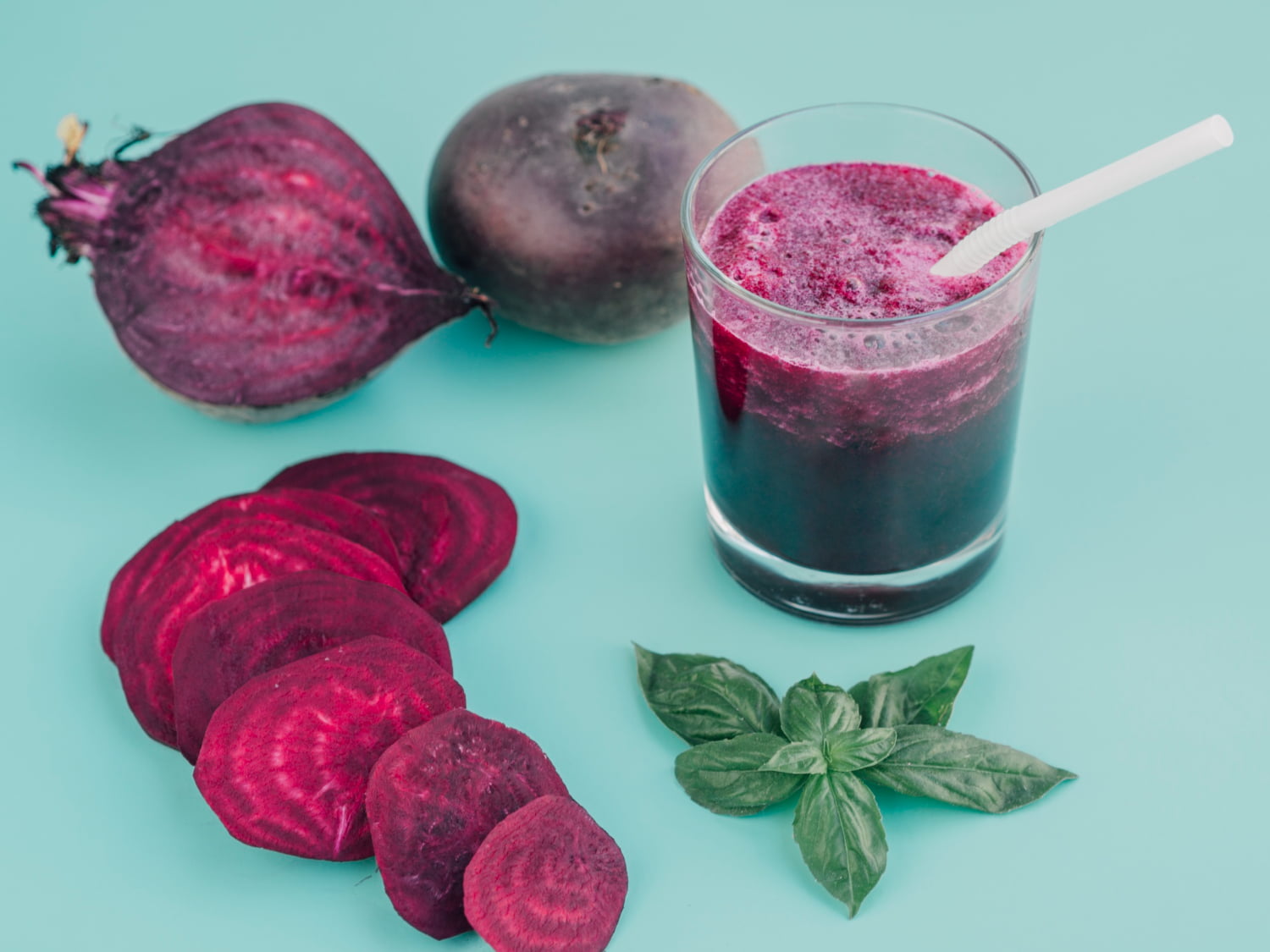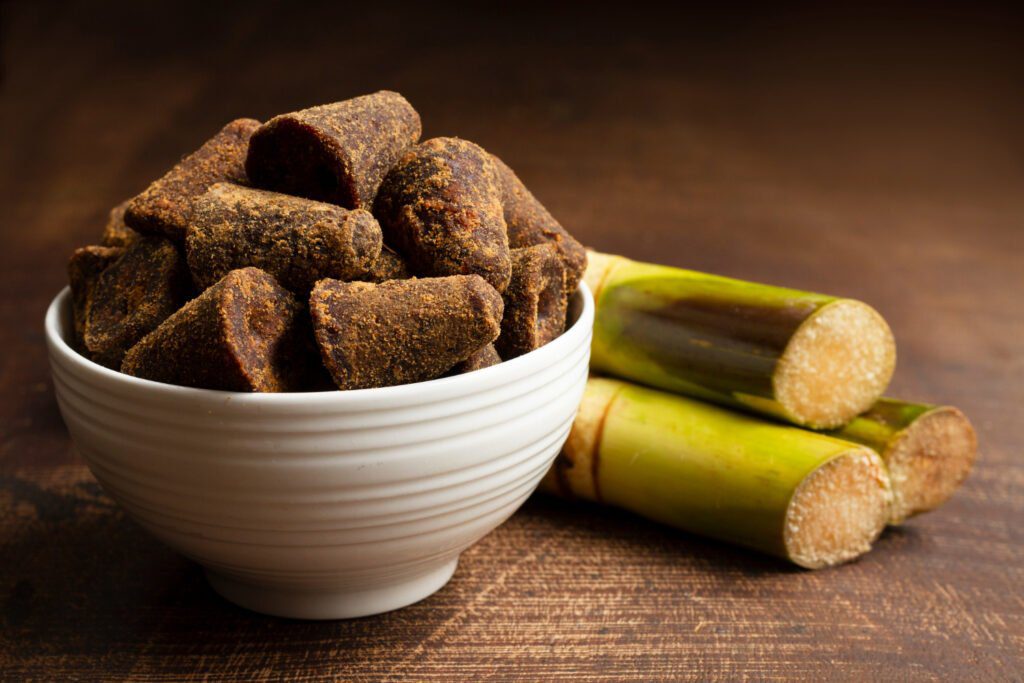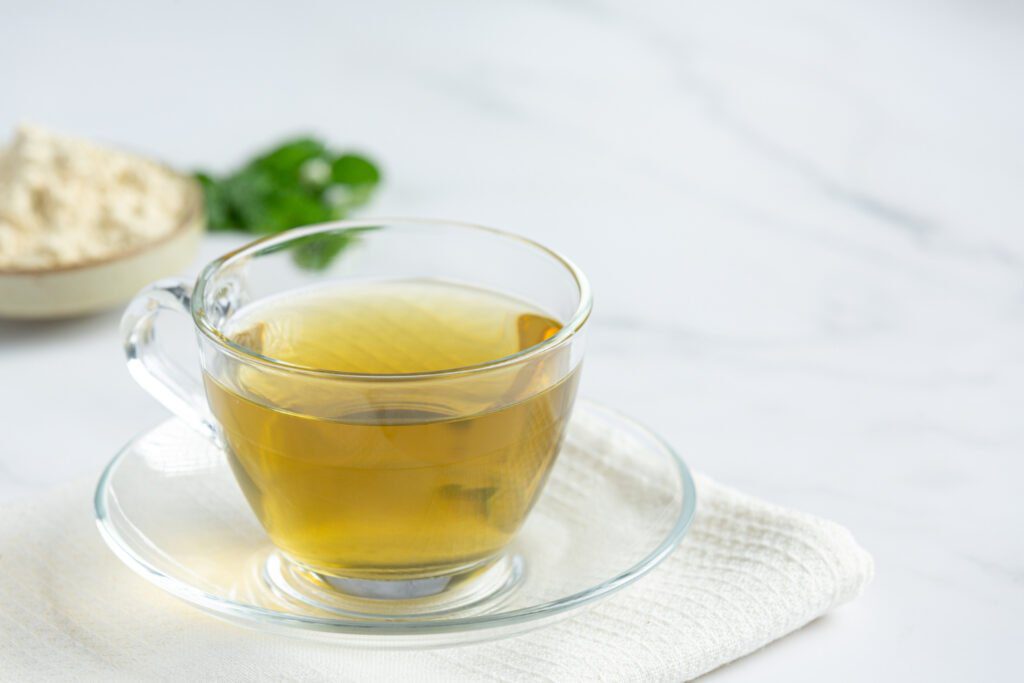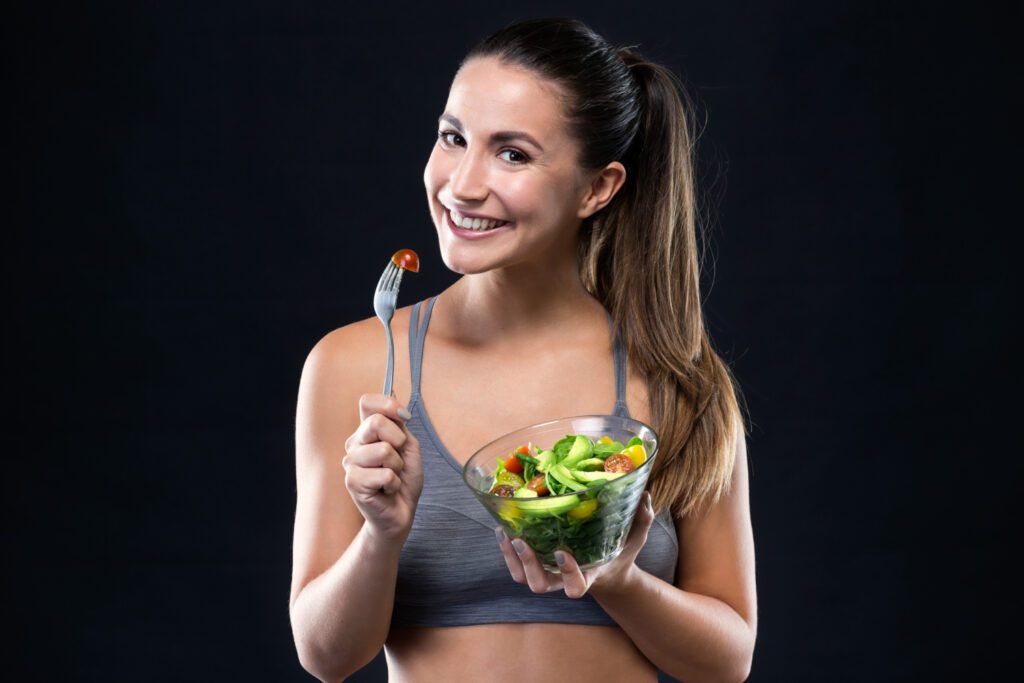Eating beet juice seems to have become fashionable a few years ago and this is due to its high natural content of nitrates which, once transformed by our body, increase the concentration of nitric oxide in the blood. And it is precisely this molecule that has been directly related to muscle energy production. The general idea is that a greater amount of nitric oxide in the blood can mean that, during exercise, the muscle needs less oxygen for energy production. In this way, it improves muscle efficiency and therefore performance in resistance exercises, but also the contractile function of the muscle and therefore, muscle power and performance in speed exercises.
Already studied since the 1970s, nitric oxide behaves as an intercellular chemical messenger since, being a small, fat-soluble molecule, it diffuses easily through cell membranes. These properties allow it to behave like a neurotransmitter and functions as diverse as: improving the performance of the immune system, controlling gastric motility, reducing inflammation, regulating vascular tone and, therefore, blood pressure, the dynamics of memory processes , the recognition of aromas (smell), the quality and duration of sleep and of course, the improvement of energy metabolism, muscle contraction and mitochondrial efficiency.
Beet Juice is a Supplement.
Indeed, the AIS ( Australian Institute of Sports ), which is one of the world references on the subject of supplementation, and the IOC (International Olympic Committee) consider it a supplement with strong scientific evidence but make clear one detail that must be highlighted. For use in specific situations in sport using evidence -based protocols . That is to say, any amount is not worth it, whenever one wants or associated with any sport. That said, without hesitation, we have carried out a bibliographic review in the most well-known databases looking for studies that, in the last four years, have analyzed how beet juice works in well-trained athletes.
Can Beet Juice Improve Your Sports Performance?
Of the 11 articles finally selected, curiously, each of them was dedicated to a different sport and under very particular conditions, as we see in the attached table, and only 3 involved female athletes. Furthermore, five studies used an acute intake of beet juice and six a chronic intake. In the former, the average intake was 7.96 mmol of NO3- in a single dose. In the latter, with doses spread between 5 and 15 days, the average intake was 9.87 mmol of NO3- / day. So, if they were so different from each other, where are their similarities?
Firstly, the subjects who participated in the study were well trained, without injuries (not even in the process of recovery), without diagnosed pathologies (such as diabetes), with plenty of sports experience, were not smokers nor did they consume drugs, medications or other supplement. We can imagine that the selection of these people was not easy.
Secondly, the protocol prior to the intervention was very similar since they had to restrict the intake of foods rich in nitrates and ergogenic drinks, but also eliminate the use of bactericides such as toothpaste or chewing gum, not do intense exercise before the intervention. the tests and carry out a similar diet in the days before the tests.
Thirdly, the intake of the supplement, and this seems to be supported by all the studies, should be done between 2 and 3 hours before starting the tests with the idea that the entire process of converting nitrate to nitrite and this to nitric oxide , as well as its absorption and transport, allow this molecule to perform its function, which is none other than the dilation of the blood vessels and therefore, the increase in blood flow to the muscle, the reduction of muscle oxygen uptake for the production of energy, the regulation of muscle glucose absorption and, derived from all of this, mitochondrial efficiency. These are the functions that contribute to the optimization of aerobic and anaerobic performance.
Finally, all participants signed the corresponding informed consent and many studies took advantage of the fact that they had a group of high-level athletes to pass other questionnaires such as the POMS (on mood), RPE or Borg Scale (both on effort). perceived) or questionnaires to assess delayed onset of muscle soreness (DOMS).
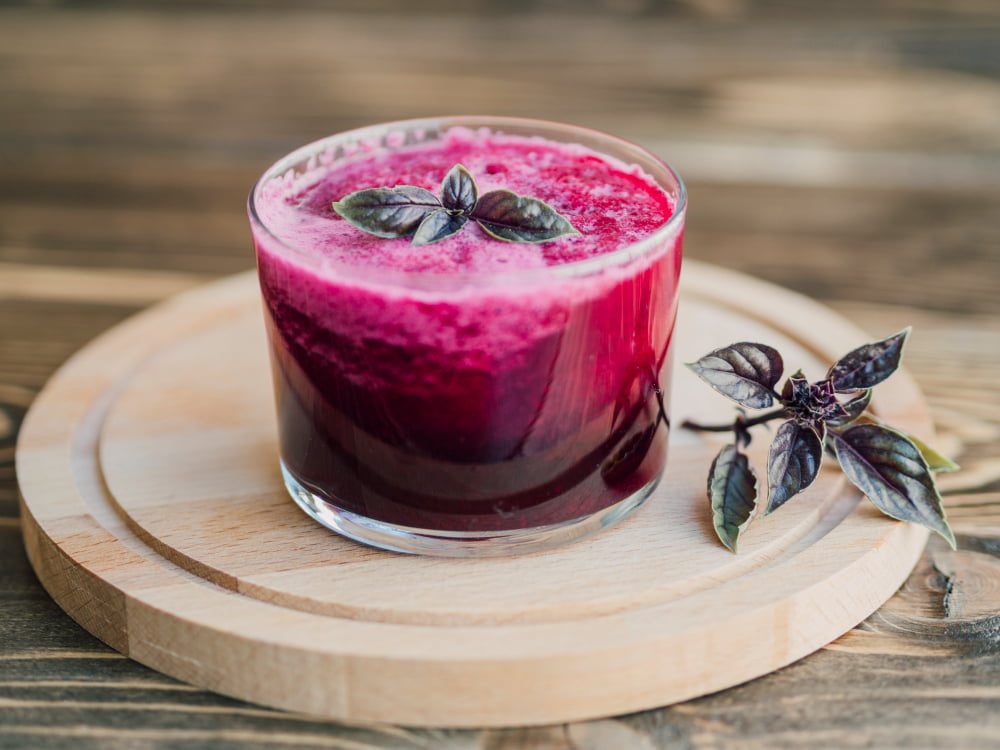
And the Results Were… Tachan!
Of the 11 studies, six did not find significant findings (be careful, more than half), two of them detected certain improvements but argued that they would need to delve deeper into the subject (well, they were not sure that these improvements were due to the intake of beet juice) and three of them did find sufficient evidence to consider nutrition (Jiu-Jitsu, Football and Athletics, which by the way they did a test, the Wingate Test, on a cycle ergometer and not running).
Now We Wonder Why These Results.
To begin with, we have to say that research on supplementation in high-level athletes has its reason for being in the fact that small improvements, even marginal, can become a competitive advantage. It is not surprising that this type of study is so popular in the world of sports, especially if its benefits end up being demonstrated and a protocol of time and quantities to be ingested is established depending on the sporting discipline. Precisely at this point is where the beet juice is found. How much? and at what moment? But, the question now is to know why there is so much variability from one study to another:
- The first reason may be purely physiological. Highly trained subjects have a very high activity of an enzyme, nitric oxide synthase (NOS), which is responsible for catalyzing the conversion of L-Arginine to L-Citrulline, producing nitric oxide in the process. That is, they already produce this molecule naturally. In addition, there are many studies that tell us that plasma nitrate and nitrite values have been found in these subjects higher than those of sedentary people. These two reasons could explain the little physiological effect found in these articles.
- Derived from the above, another reason could be that the amount of nitrate ingested is not high enough to have an ergogenic effect in well-trained people. In fact, some of these studies, when analyzing the results, suggest that acute supplementation, in a single dose, is insufficient to significantly alter the bioavailability of nitric oxide and that, therefore, these levels are irrelevant for improving performance.
- The second important reason has to do with the physiological adaptations of these athletes. That is, greater capillarization at the muscular level and an optimized oxygen transport system can make nitrate supplementation less effective than in recreational athletes in whom it has been shown in some studies that beet juice can improve their performance. Precisely because they are not as well adapted to sport as a well-trained subject.
- A third point is that the authors of the studies themselves recognize that variability is conditioned by the type of sport being investigated. In our small sample we have a wide representation: two team sports (football and water polo), seven individual disciplines (Jiu-jitsu, speed skating, tennis, freediving, athletics or cycling) and two combined activities such as CrossFit or triathlon . Well, based on the characteristics of the sport, each study selects a type of physical test (ideally validated for each discipline) and some parameters for measuring and monitoring the tests. In order to compare the results in relation to the intake of this type of supplementation, the amount, the time of intake (acute and chronic), the tests that are done and how the results are measured, should be protocolized for each sport. Currently this does not exist, which generates great heterogeneity in what is measured and how it is measured.
- Finally, let us remember that in these studies we work with people who, although they are disciplined, it is impossible to have absolute control over the protocols prior to the tests, for example, over what they eat or do not eat and that could influence the study. Therefore, although in all of them the subjects were instructed to maintain their routines before and during the tests, there are parameters such as hours of sleep and dietary intake that are difficult to control.
About the Studies That Did Find Evidence.
I study Jiu-Jitsu. In this research, a chronic (8 days) and high intake (12.2 mmol of NO3-) was proposed and something very specific was measured, which was the strength of the forearm, the oxygen saturation in these muscles (SpO2), as well as the exercise time until fatigue. When an improvement in forearm SpO2 and a delay in lactate accumulation was detected, it was concluded that it could be a good supplement to prevent the decrease in strength in response to exercise, something that is key in fighting sports where combat is produced in very short time intervals.
I study in football. In this case, they were supplied ~13.5 mmol of NO3- for 7 days. What was detected was that chronic supplementation improved the recovery of muscle function and reduced perceived muscle pain after effort.
I study cycling. This research is interesting because what it sought to demonstrate was whether this acute single-dose supplementation (6.4 mmol NO3-) had any effect on anaerobic performance in well-trained sprinters at different times of the day. Curiously, the physical test was not done running, but on a cycle ergometer and its results suggest that this supplement can attenuate the decrease in performance associated with training in the first hours of the day.
Bottom Line.
Only 3 studies found significant findings to consider supplementation but in SPECIFIC DISCIPLINES and CIRCUMSTANCES. There is no single criterion for the amount of beet juice and how it should be ingested. In the systematic review, a great variability is observed in the types of physical tests and in the parameters measured. There is a lack of studies on women in the field of high competition.
How we reviewed this article:
Our team of experts is always monitoring the health and wellness field, ensuring that our articles are updated promptly as new information emerges. See Our Editorial Process
May 13, 2025
Written By: Danielle Pashko
Reviewed By: Corissa S.
Written By: Danielle Pashko
Reviewed By: Corissa S.

 Workout
Workout
 Meditation
Meditation





 Contact Us
Contact Us

